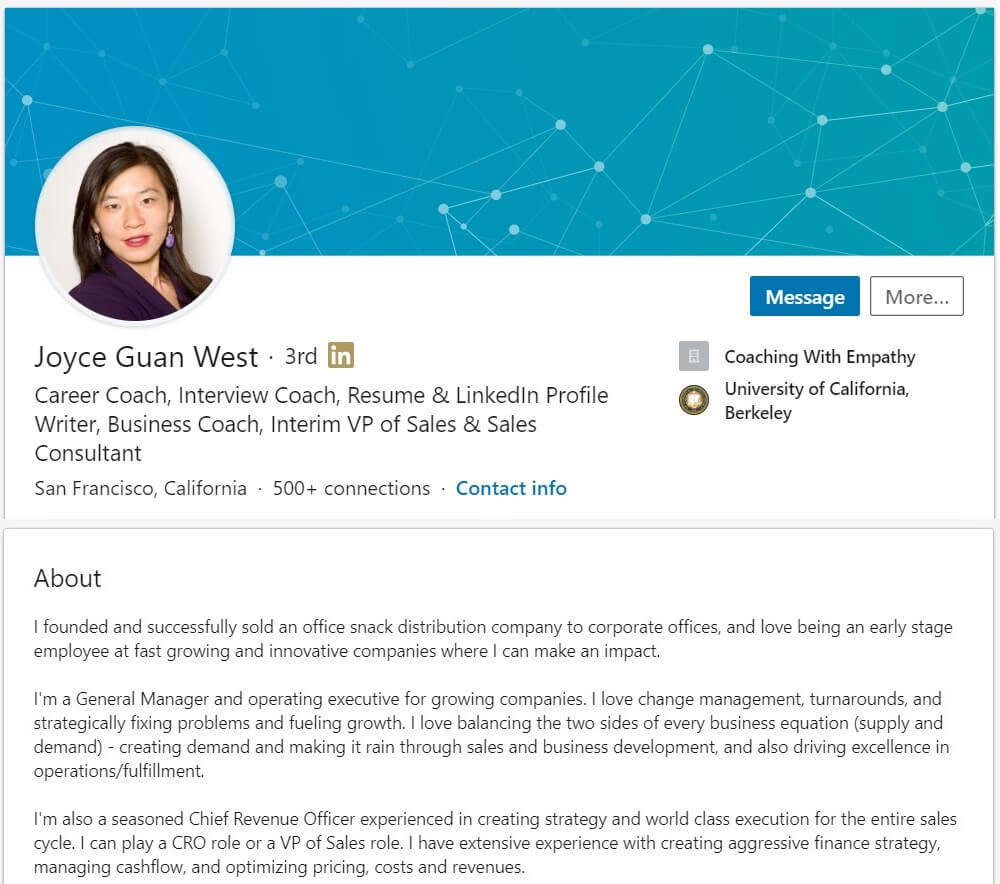

- #Linkedin summary examples for logistics how to#
- #Linkedin summary examples for logistics professional#
Notice how the school leaver includes a fun fact in her headline – ‘Professional Maths Geek’. It achieves this by focusing on her career aspirations and her ongoing training.
#Linkedin summary examples for logistics professional#
‘Aspiring Accountant | Progressing Towards AAT Qualification | Professional Maths Geekĭespite the school leaver having no work experience, her LinkedIn headline is engaging and it shows that she is a strong candidate for entry roles in accountancy. Here is an example of a school leaver’s LinkedIn headline: These may be academic achievements or skills gained during work placements. If you have no professional experience, the key is to identify your strongest selling points and focus on those.
#Linkedin summary examples for logistics how to#
The bigger the word, the more frequently it appears on job postings, and the more 'important' it is.If you have no experience, you may be wondering how to write your LinkedIn headline.


This word cloud highlights the important keywords that appear on Logistics job descriptions and resumes. As mentioned earlier, basic research into the job description is critical as it helps get the right information about the job responsibilities - there's a big range of logistics roles so you want to make sure you identify and target the right ones.įor more skills, visit Logistics Skills & Keywords. Knowing these skills can help you manage a supply chain efficiently and also help you succeed as a logistics professional. If you are looking to start a career in logistics management or looking to enter the next phase of your career, there are some skills recruiters in the industry like that you should consider including on your resume. Here are some jobs in logistics you could consider Therefore, there are career development opportunities in this profession.

In business, successful logistics management often translates to increased efficiency, lower operation costs, higher productivity rates, better inventory control, improved customer relation, supplier satisfaction, better use of warehouse space, and improved customer experience.Ī logistics manager is responsible for the entire lifecycle of a product, including how it is acquired, allocated, and delivered, so they are employed in many different sectors, including private companies and government agencies. Logistics enables commerce worldwide, whether a medium-sized fashion house shipping their products across the country or a superstore giant delivering anything and everything internationally. Additionally, good logistics management aims to match consumer requests and provide exceptional service.Īlmost every business requires logistics. With today's industrial challenges, well-planned logistics management has become a critical component of every business's performance and directly impacts its bottom line. Regardless of their size, logistics operations play a fundamental role in supporting the movement of goods and services.Īs freight volume increases and transportation gets complicated, there is an increasing demand for robust logistics management. Moving a product or service from A to B is never so easy. It serves a variety of roles and functions. Logistics is more than just physical distribution.


 0 kommentar(er)
0 kommentar(er)
